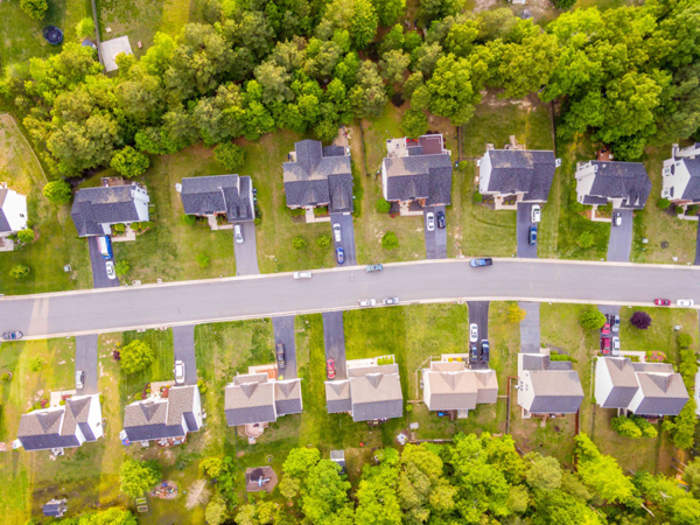The financial health of a community and planning for long-term projects is critically important to any homeowners association (HOA). In fact, it is so important, a term was created for it: “reserve study.” And while the term “reserve study” probably isn’t anything new if you serve or have ever served on an HOA board, many new homeowners, or those new to an HOA, may not fully understand the importance of a reserve study for the ongoing health of their community.
What is a reserve fund and what is it used for?
The first thing to know is that HOAs have two major financial accounts: the operating fund and the reserve fund. The operating fund is used for day-to-day expenses and maintenance of the association’s assets, whereas the reserve fund is where an HOA saves money for more costly projects, repairs, and replacements including major landscaping projects, building/repairing a community playground, replacing a pool pump, replacing a clubhouse roof, painting common areas or structures, sidewalk repair, and other major construction projects. Additionally, reserve funds can be useful for handling any sudden repair needs that arise due to storms, accidents, and other disasters. Depending on the geographic location of your community, this may or may not be a major point of concern.

Your reserve fund needs to have enough money in it to handle all anticipated expenses, which is why many HOAs opt to (or are required to, in some states) perform a reserve study to help them anticipate future expenses.
What is a reserve study?
In its most simple definition, a reserve study is a list of items that a community needs to set aside funds for. A full HOA reserve study typically includes a thorough inspection of all the HOA’s shared assets and features, which helps anticipate future repair needs. This physical evaluation should be combined with a financial assessment, providing some insight into the HOA’s current fiscal health and the stability of HOA reserve funds.
It’s important to note that reserve studies require a lot of technical expertise that most HOA board members don’t have. As such, reserve studies are usually carried out by external professionals.
How much does a reserve study cost?
The cost of a reserve study typically depends on the size of the community, its amenities, the complexity of the structures, and more. There are also different kinds of reserve studies: some that require an onsite visit, and others that do not. Some are full studies, while others are updates to an existing study. The cost can vary between a few hundred to a few thousand dollars, depending on the company and type of study.
How is a reserve study performed?
A full reserve study is typically conducted by an association’s management company, or by a third-party company who specializes in reserve studies. Once the onsite inspection has been completed and the financial health of the association has been evaluated, a report will be created and presented to the HOA Board. The report should list the lifespan (both expected and remaining) of the areas required to be maintained by the association, as well as the cost to maintain and replace them. The report should also include recommendations for the reserve account and a funding plan, as needed.
How frequently are HOA reserve studies required?
Each state has different laws/requirements for associations, and many require both reserve studies and reserve accounts. In Oregon, for example, ORS 100.175 and ORS 94.595 require associations to conduct or update existing reserve studies annually. For unit sales, associations are required to disclose the reserve balance and, if they are not adequately funding the reserve accounts per the reserve study, they must include that information and the reason why it isn't funded.
Why is a reserve study necessary?
Unfortunately, many HOAs have underfunded reserves. They don’t have enough money saved to cover estimated future expenses. Not every state has laws requiring reserve studies, but it is a good idea for every HOA, regardless of the laws, to have a professional reserve study conducted at least every few years. A reserve study evaluates the condition of major assets and amenities, estimates when they will need to be repaired or replaced, and how much that will cost.
If you don’t have a sufficient reserve fund in place when emergency repair needs arise (again, think storms or other inclement weather), then the HOA will need to scramble to find a way to pay for the repairs. There are a number of options available to HOA boards that get caught without sufficient reserve funds, and none of them are pretty. These include increasing dues, conducting a special assessment (one-time fee to homeowners), and external financing.
How an HOA Management Company Can Help
Adequate reserves are vital to the health of any community association. That’s why reserve studies should always be conducted by an expert. A competent association management company like AMS can coordinate this comprehensive report as part of ongoing management services and provide guidance on financial planning that results from the reserve study.
The single most critical issue for an HOA board is to complete and fund a reserve study. At AMS, we use top-notch vendors to complete the study, we advocate for proper funding (even when the news is bad), evaluate the lifespan of components, help find alternative investments, and monitor your progress along the way.
Contact our Property Management Specialists
Get a No-Obligation Quote and a FREE Rental Analysis

Michelle Villarma
Oregon & Washington




